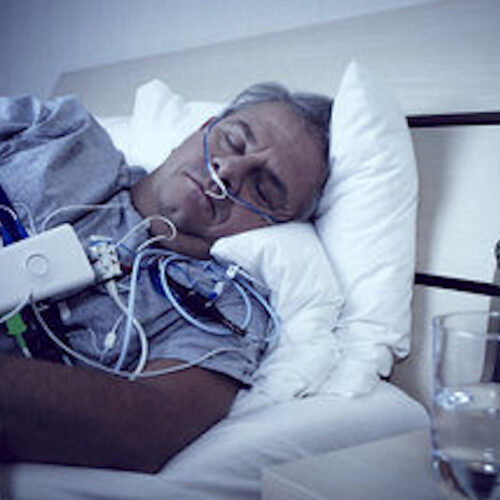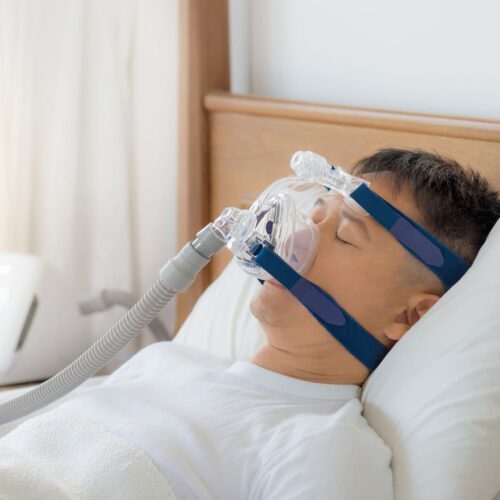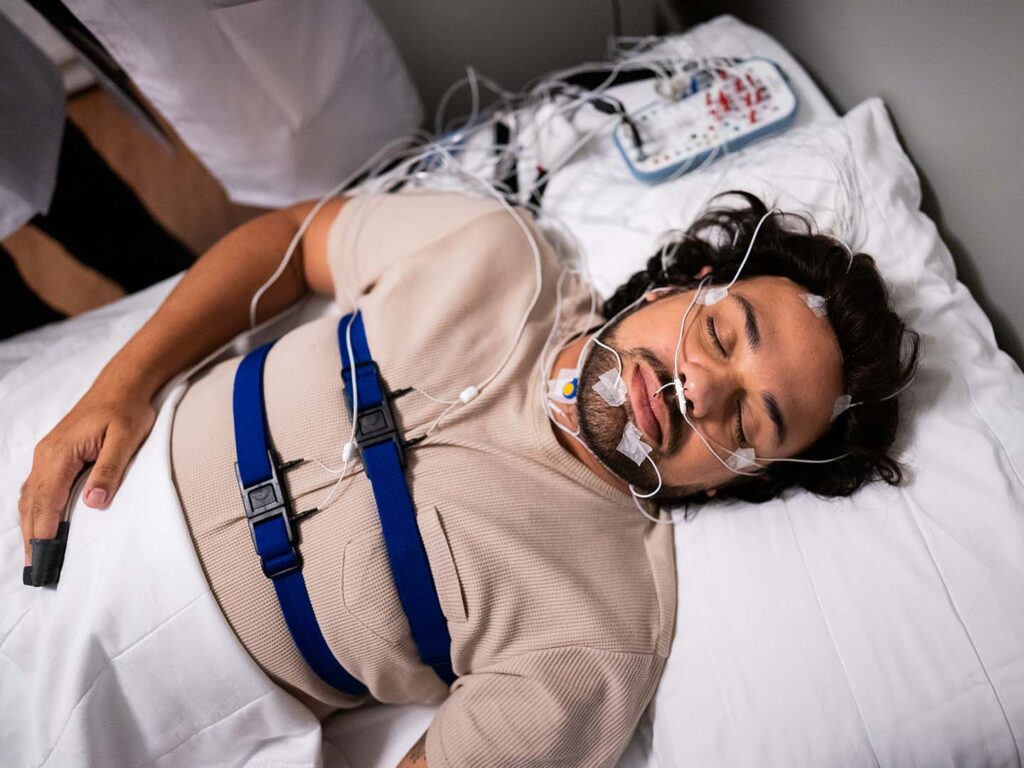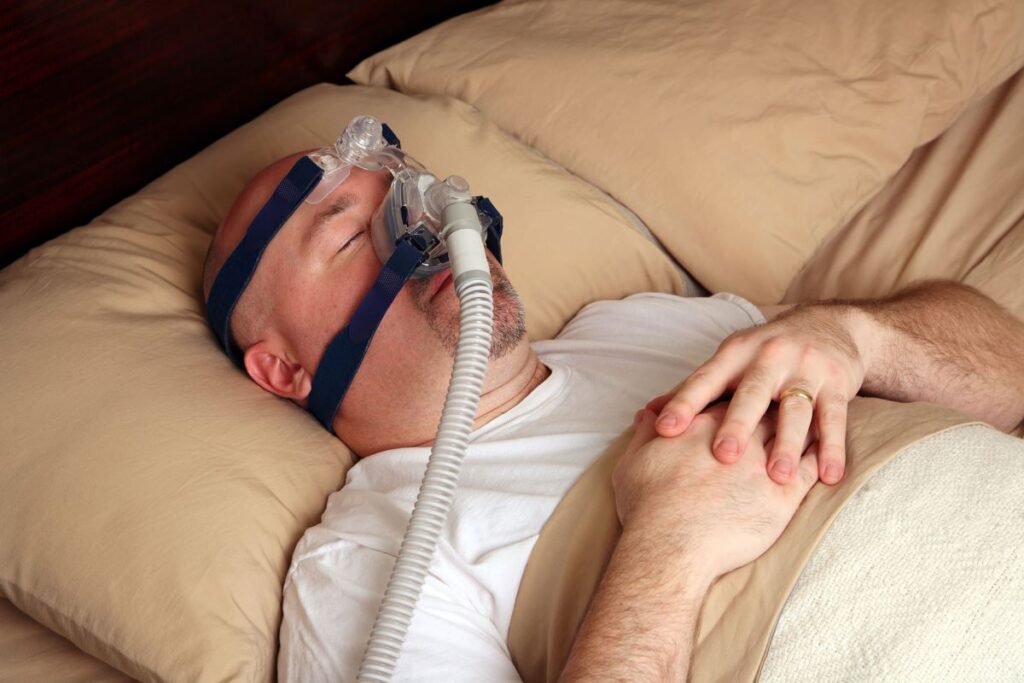No, you typically cannot access a Medicare-supported home sleep study in Adelaide without a GP referral. Most sleep diagnostic services, including Southern Sleep and Gawler Sleep Clinic, require a signed referral from a general practitioner or specialist before proceeding with testing.
Home sleep study Adelaide services offer a convenient way to diagnose sleep disorders such as obstructive sleep apnea. These tests allow patients to undergo monitoring in the comfort of their own beds, avoiding the need for an overnight stay in a clinical sleep laboratory. The equipment records breathing patterns, oxygen levels, and other vital data while you sleep naturally at home.
Early diagnosis through a home sleep study Adelaide can prevent serious health complications, including cardiovascular disease, stroke, and accidents caused by daytime fatigue. A referral from your GP ensures that patients receive proper medical assessment before testing and enables coverage under the Australian Medicare Benefits Schedule guidelines.
Private testing options may exist, though they come with limitations on reimbursement and professional oversight.
What Is a Home Sleep Study and How Does It Work?
A home sleep study (also called ambulatory sleep testing) allows you to undergo diagnostic sleep monitoring in the comfort of your own bed rather than spending a night in a hospital or clinic. This convenient testing method records essential physiological data while you sleep naturally in your familiar environment, making it an accessible option for diagnosing conditions like obstructive sleep apnea.
The Sleep Monitoring Equipment
The sleep monitoring equipment used in home studies includes several specialized sensors and leads that track different aspects of your sleep:
- Nasal airflow sensors that detect breathing patterns and interruptions
- Chest and abdomen belts measuring respiratory effort
- Pulse oximeter (typically worn on the finger) monitoring blood oxygen levels
- Heart rate sensors tracking cardiac activity throughout the night
- Body position sensors recording sleep positions
- Optional leads placed on the head for more comprehensive studies measuring brain activity
These devices connect to a small recording unit that stores all data collected during your sleep. The equipment is designed to be lightweight and minimally intrusive, though it may take some adjustment to fall asleep whilst wearing the sensors.
What Patients Need to Do During the Test
Preparing for your home sleep study process involves following specific guidelines to ensure accurate results:
- Avoid caffeine from late afternoon onwards on the test day
- Skip hair products like gels, sprays, or oils that could interfere with sensor adhesion
- Maintain your regular sleep schedule and bedtime routine
- Attach the monitoring equipment according to the provided instructions (or a technician may visit to set up the devices)
- Sleep as normally as possible for a full night (typically 6-8 hours minimum)
- Remove the equipment upon waking and return it to the clinic
The clinic provides detailed written and verbal instructions for equipment setup. Most patients find the process straightforward, though support hotlines are available if technical issues arise during the night.
Data Analysis Timeline
Once you return the equipment, independent physicians specializing in sleep medicine analyze the recorded data. The analysis examines breathing patterns, oxygen saturation levels, heart rate variations, and sleep disruptions. Results typically become
Why Is a GP Referral Usually Required for a Home Sleep Study in Adelaide?
A GP referral is usually required for a home sleep study in Adelaide because general practitioners are trained to evaluate sleep-related symptoms and determine whether diagnostic testing is medically necessary. Your GP will assess symptoms such as loud snoring, daytime fatigue, witnessed breathing pauses, or morning headaches to see if you qualify for a sleep study.
Medicare Requirements and the Australian Medicare Benefits Schedule
The Australian Medicare Benefits Schedule requires a GP referral for patients to receive Medicare rebates on home sleep studies. Without this referral, you’ll have to pay for the test yourself, which can be much more expensive. The need for a GP referral exists to make sure that Medicare-funded diagnostic services are given to patients who really need them based on their clinical presentation.
Clinical Gatekeeping and Resource Allocation
The referral system acts as a way to filter out unnecessary testing. Sleep studies require special equipment, physician analysis time, and follow-up consultations—resources that need to be used efficiently within the healthcare system. Your GP’s assessment helps identify:
- Patients with a high likelihood of sleep disorders before the test
- Individuals who may benefit from other investigations first
- Cases that need immediate specialist attention instead of home testing
- Situations where lifestyle changes should be tried before diagnostic testing
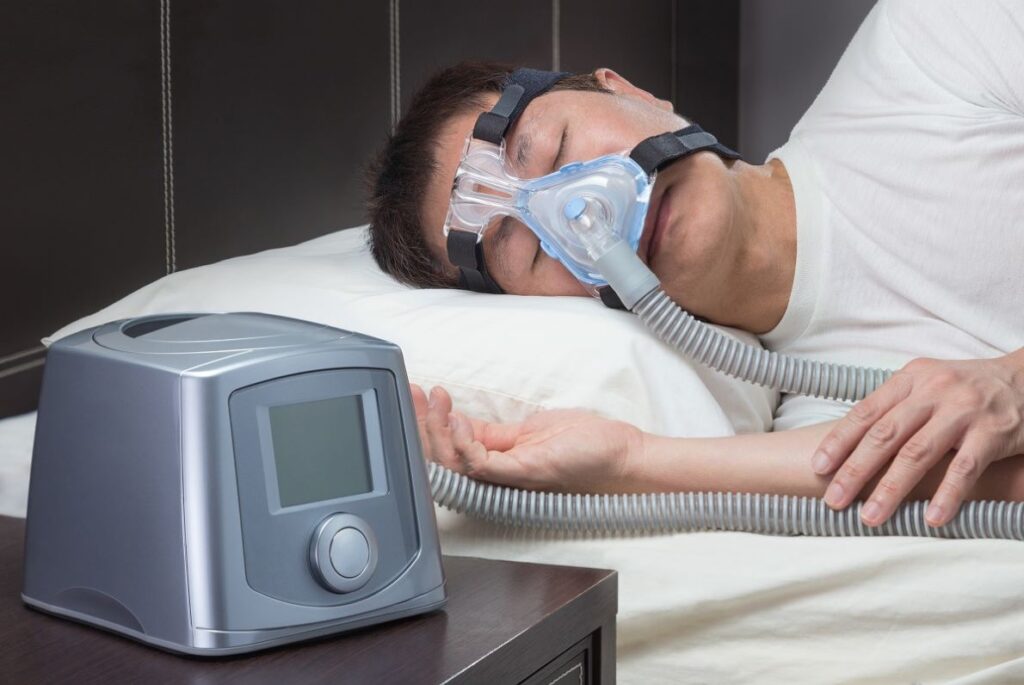
Documentation and Treatment Pathways
A GP referral creates a documented medical record connecting your symptoms to the diagnostic process. This documentation becomes important if you’re diagnosed with a sleep disorder and need to access treatments like CPAP therapy through Medicare. The referral establishes the medical reason for ongoing care and ensures continuity between your primary care provider and sleep specialists managing your condition.
Moreover, it also plays an essential role in streamlining the treatment process by providing relevant medical history and facilitating better communication between healthcare providers.
Are There Any Exceptions to the GP Referral Requirement for Home Sleep Studies?
Can you do a home sleep study in Adelaide without a GP referral? Yes, some private clinics may accept self-referrals or direct bookings, though patients will lose Medicare rebates and pay full out-of-pocket costs.
Private sleep clinics in Adelaide occasionally offer direct access to sleep studies for patients who prefer to bypass the GP consultation process. These services cater to individuals who want immediate testing or have already identified their symptoms through personal research. Patients can contact specialized clinics directly to enquire about their private clinics policies regarding self-referral options.
The primary limitation centres on financial implications. Without a GP referral, patients cannot claim Medicare rebates for the home sleep study, meaning they bear the entire cost of testing and analysis. These exceptions to referral requirements typically involve:
- Full private payment for the sleep study equipment and physician analysis
- No access to Medicare Benefits Schedule (MBS) item numbers
- Potentially higher overall costs compared to GP-referred pathways
- Limited insurance coverage depending on private health fund policies
Some specialized sleep centres may accept referrals from allied health professionals such as dentists treating sleep-related breathing disorders, though this varies by clinic. Patients considering this route should contact Adelaide sleep clinics directly to confirm their acceptance criteria and obtain detailed pricing information before proceeding with testing.
How Do Patients in Adelaide Typically Obtain a Home Sleep Study?
The standard pathway begins when patients notice concerning sleep symptoms such as loud snoring, daytime fatigue, witnessed breathing pauses, or morning headaches. These warning signs prompt the initial consultation with a general practitioner.
The GP Assessment Process
During the appointment, your GP evaluates your symptoms through a clinical assessment that may include:
- Discussion of sleep patterns and quality
- Review of medical history and risk factors
- Physical examination focusing on airway structures
- Assessment of body mass index and neck circumference
- Evaluation of daytime sleepiness using standardized questionnaires
If the GP determines a sleep study is warranted, they provide a signed referral document authorising the diagnostic test. This referral serves as the gateway to booking home sleep study Adelaide services through accredited clinics.
Scheduling With Sleep Clinics
Once you have the referral, contact specialised providers such as Southern Sleep or Gawler Sleep Clinic directly. The booking process typically involves:
- Providing your GP referral details and Medicare information
- Selecting a convenient date for equipment collection or delivery
- Receiving pre-test instructions about preparation requirements
- Confirming your contact details for follow-up communication
Some clinics coordinate with the role of specialists who may review your case before the study, particularly if complex sleep disorders are suspected. The clinic schedules your equipment pickup or arranges courier delivery to your home, along with detailed setup instructions for the monitoring devices you’ll use during sleep. Click here to get where to get a reliable sleep apnea test in Adelaide and what It costs.
What Happens After Completing a Home Sleep Study?
How are sleep study results processed and delivered?
Independent physicians analyse the collected data from your home sleep study within 7-14 days of returning the equipment. These specialists examine your sleep patterns, oxygen saturation levels, breathing interruptions, and other physiological markers recorded throughout the night.
The analysis produces a comprehensive report detailing any detected sleep disorders, their severity, and specific measurements such as the Apnoea-Hypopnoea Index (AHI). Adelaide clinics like Southern Sleep and Gawler Sleep Clinic typically send these reports directly to your referring GP or specialist who ordered the test.
What comes next in sleep disorder treatment planning?
Your GP reviews the sleep study results with you during a follow-up appointment. If the report confirms obstructive sleep apnea or another sleep disorder, your doctor discusses treatment options tailored to your diagnosis severity:
- CPAP (Continuous Positive Airway Pressure) therapy for moderate to severe cases
- Oral appliance therapy for mild to moderate conditions
- Lifestyle modifications including weight management and sleep position training
- Referral to a sleep specialist for complex cases requiring advanced intervention
Some patients require follow-up appointments with sleep physicians to fine-tune treatment plans, particularly when CPAP titration or alternative therapies need adjustment. Adelaide sleep clinics often provide ongoing support services, including equipment fitting and therapy monitoring, to ensure optimal treatment outcomes.
Can Telehealth Support Be Used in Conjunction With Home Sleep Studies?
Yes, telehealth services are increasingly available for sleep disorder diagnosis and management in Adelaide, working alongside home sleep studies to provide comprehensive remote care.
Adelaide-based sleep clinics now offer telehealth sleep consultations that allow patients to discuss symptoms, review sleep study results, and receive treatment recommendations without visiting a physical clinic. These virtual appointments connect patients with sleep specialists who can interpret diagnostic data and prescribe appropriate therapies through secure video platforms.
Benefits of Telehealth for Sleep Disorder Management
Remote patient management has become particularly valuable for ongoing CPAP therapy support. Patients using continuous positive airway pressure devices can access:
- Virtual troubleshooting sessions for equipment issues
- Remote monitoring of therapy compliance and effectiveness
- Adjustments to pressure settings based on downloaded device data
- Educational resources about mask fitting and maintenance
Telehealth bridges the gap between initial home testing and long-term treatment success. After receiving a home sleep study report, patients can schedule a telehealth consultation to discuss findings rather than waiting weeks for an in-person appointment. This accelerates the treatment pathway whilst maintaining quality care standards.
For those managing diagnosed sleep apnea, regular telehealth check-ins ensure therapy adherence and address concerns promptly. Sleep clinics in Adelaide integrate these digital services with traditional care models, creating flexible options that suit different patient needs and schedules.
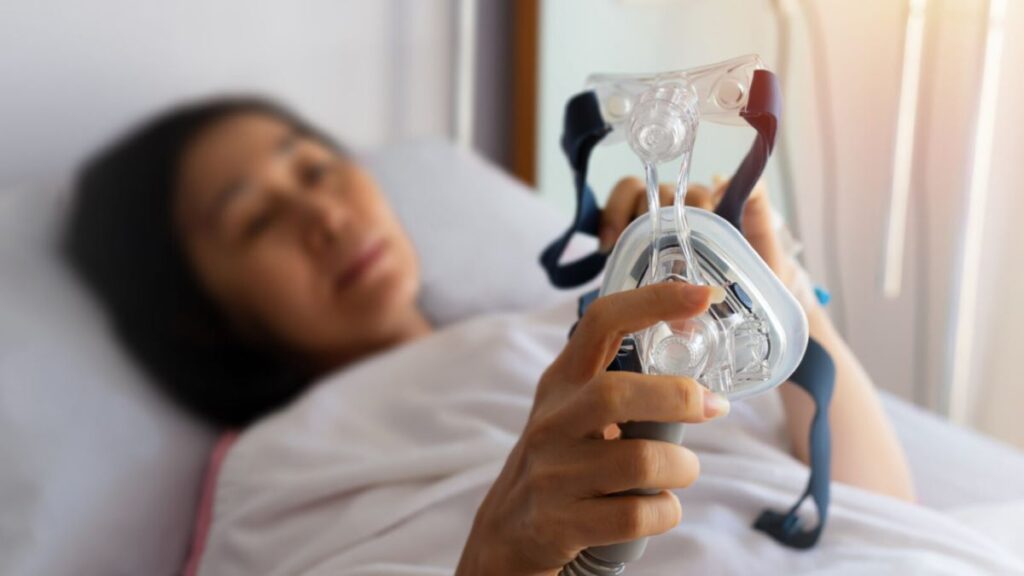
Conclusion
Can you do a home sleep study in Adelaide without a GP referral? The answer is generally no if you want Medicare coverage. Home sleep studies remain highly accessible through Adelaide’s specialist clinics like Southern Sleep and Gawler Sleep Clinic, but the GP referral requirement protects both patients and the healthcare system by ensuring appropriate diagnostic pathways.
The Medicare coverage summary is straightforward: government-supported testing requires your GP’s assessment and signed referral. This process allows your doctor to evaluate your symptoms, rule out other conditions, and determine whether a sleep study is the right diagnostic tool for your situation.
Don’t delay seeking help for sleep disorder symptoms. Untreated conditions like obstructive sleep apnoea carry serious health risks, including cardiovascular complications and daytime impairment. Book an appointment with your GP to discuss your sleep concerns and begin the referral process.
The accessibility of home sleep studies in Adelaide means you can complete diagnostic testing in the comfort of your own bed, with expert analysis and follow-up care readily available through established local providers.
FAQs about home sleep studies in Adelaide
Generally, no. Medicare-supported home sleep studies require a GP or specialist referral. Some private clinics may allow self-referrals, but patients must pay full out-of-pocket costs and lose Medicare rebates.
2. What is a home sleep study and how does it work?
A home sleep study (ambulatory sleep testing) monitors your sleep in your own bed using sensors that record nasal airflow, breathing effort, oxygen levels, heart rate, and body position. The data is stored for analysis by sleep physicians.
3. Why is a GP referral usually required?
GPs assess whether testing is medically necessary, evaluate symptoms, and determine eligibility for Medicare rebates. The referral ensures testing resources are used appropriately and provides continuity of care between your GP and sleep specialists.
4. What does the home sleep study equipment include?
Typical equipment includes:
Nasal airflow sensors
Chest and abdomen belts measuring respiratory effort
Pulse oximeter for oxygen levels
Heart rate sensors
Body position monitors
Optional leads for brain activity may be included in more comprehensive studies.
5. How should I prepare for a home sleep study?
Avoid caffeine after mid-afternoon
Skip hair products that interfere with sensor adhesion
Maintain your usual sleep schedule
Follow setup instructions provided by the clinic
Sleep naturally while wearing the monitoring equipment for 6–8 hours
6. How is the data analyzed after a home sleep study?
Once the equipment is returned, sleep physicians analyze the data to detect breathing patterns, oxygen drops, heart rate changes, and sleep disruptions. A comprehensive report is then sent to your referring GP or specialist.
7. What treatment options are recommended based on home sleep study results?
Treatment depends on diagnosis severity:
Mild cases: Lifestyle modifications, sleep position training
Moderate to severe cases: CPAP therapy, oral appliance therapy
Complex cases: Referral to a sleep specialist for advanced intervention
8. Can telehealth support be used with home sleep studies?
Yes. Adelaide sleep clinics offer telehealth consultations for reviewing results, discussing treatment options, troubleshooting CPAP devices, and monitoring therapy compliance remotely.
9. Why should I not delay getting a home sleep study?
Untreated sleep disorders, such as obstructive sleep apnea, increase the risk of cardiovascular complications, daytime fatigue, stroke, and accidents. Early diagnosis ensures timely treatment and reduces long-term health risks.

